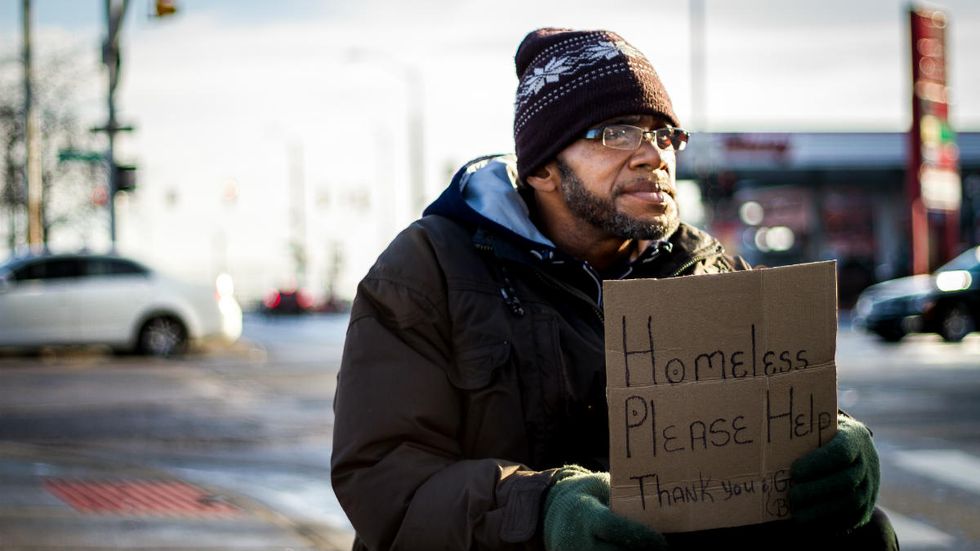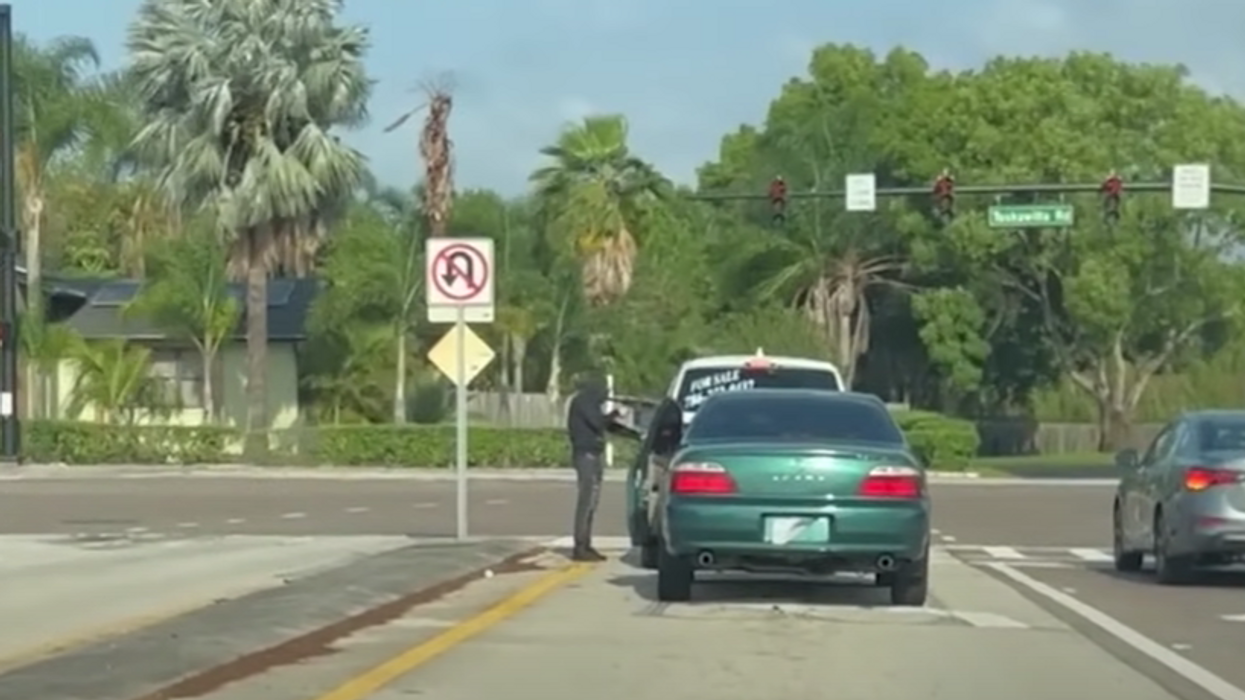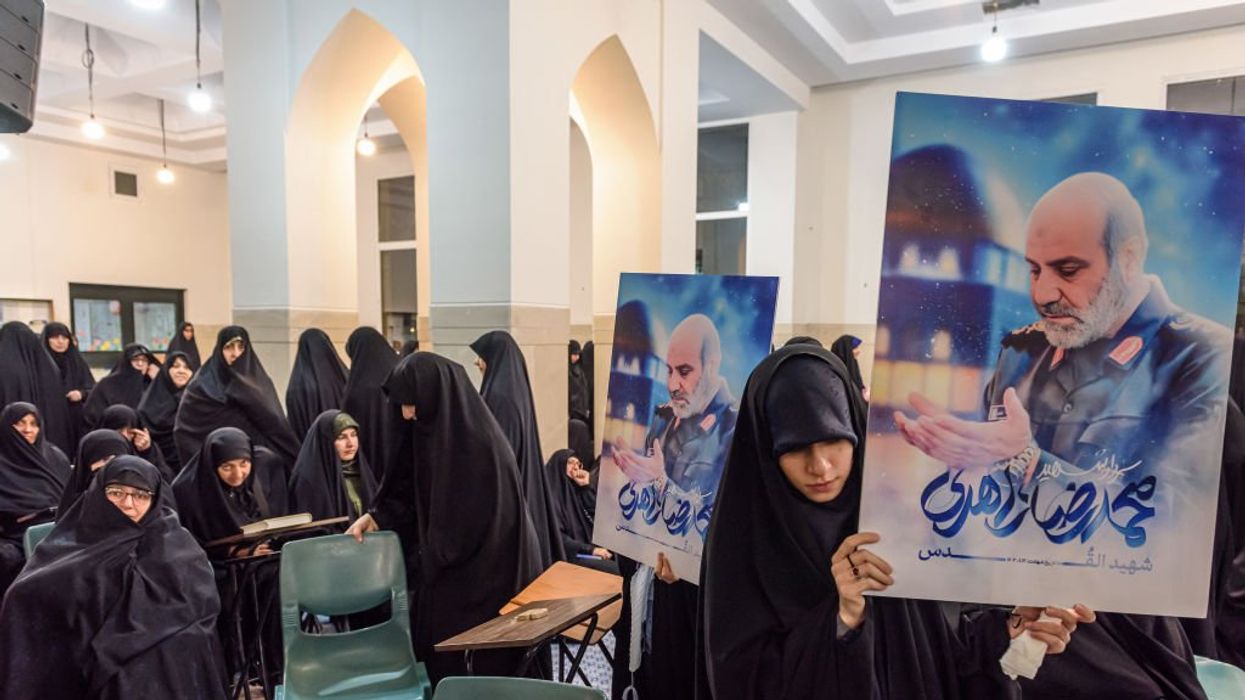
© 2024 Blaze Media LLC. All rights reserved.
Everything wrong with toxic charity and welfare statism in a single perfect quote
December 28, 2017
Shouldn’t charity help the poor out of poverty?
Should helping the poor merely make poverty more comfortable, or should it actually help people get out of it? A recent debate over how best to deal with California’s growing homeless problem offers some insight into the old question.
This lengthy story from the Associated Press details how forms of charity for California’s exploding homeless problem are fomenting concerns that the “charity” given helps people remain homeless more than it helps them improve their circumstances. It begins with a lawyer and activist being denied permission to install toilets on the site of a 400-person homeless encampment in an Orange County riverbed.
While he calls the matter “a question of basic empathy,” others are concerned that this particular brand of charity is doing more harm than good for the Golden State’s homeless population.
One local resident, 46-year-old Shaun Dove, a policeman from Anaheim nearing retirement, put it best:
“If the ultimate goal is to get them under a roof, why on Earth are you giving all the advantages you would have under a roof on the riverbed? … There’s no doubt that giving them stuff there prevents them from a desire to move.”
Mr. Dove puts the issue in a nutshell: Helping the poor is actually supposed to help them out of poverty, not just make long-term poverty more comfortable.
This is nothing new. I saw the same kinds of problems while spending a summer during college studying international development in east Africa.
If you talk to anyone who has been in the field of international development, they too rail against forms of toxic charity administered with the same do-gooder mentality that does everything to create dependence and apathy in the populations it seeks to help. A quick search of any academic database on the subject turns up paper after paper featuring case studies of what works to create sustainable growth in the developing world and what only works to create a never-ending stream of short-term do-gooders flown in from developed economies.
The subject is complex, but it all comes down to one basic contrast: Do acts of charity really seek the long-term benefit of those they try to help? Or do they benefit the giver’s sense of accomplishment more than the recipient’s long-term well-being?
The latter looks a lot like what folks are now concerned about in California. But this problem of toxic charity has been in place in the United States for a long time, through our ever-growing, poorly-managed welfare state.
There’s a ton of literature on this subject as well. But one need only look at the documented, discouraging effects that our current welfare structure has on things like work and marriage (yes, the infamous “benefits cliff”) — things proven to cut down on poverty rates — in the populations it ostensibly seeks to help to get the picture: Charity that doesn’t prudently seek the betterment of its object only creates more poverty.
Yet, over and over again, those who seek to reform our demonstrably broken system — as the GOP plans to do next year — are routinely demonized as hurting the poor, though nobody in that particular peanut gallery ever seems to ask how well the poor are being truly helped out of poverty by the current design of the social safety net.
Yes, creating more amenities for down-on-their-luck folks in a riverbed in California, or handing out benefits via a faceless federal government program, may assist the poor in the short term while providing “givers” with a case of the warm fuzzies, but in the long run, all they really do is just ensure more poverty.
#mc_embed_signup{background:#fff; clear:left; font:14px}
/* Add your own MailChimp form style overrides in your site stylesheet or in this style block.
We recommend moving this block and the preceding CSS link to the HEAD of your HTML file. */
Want to leave a tip?
We answer to you. Help keep our content free of advertisers and big tech censorship by leaving a tip today.
Want to join the conversation?
Already a subscriber?
more stories
Sign up for the Blaze newsletter
By signing up, you agree to our Privacy Policy and Terms of Use, and agree to receive content that may sometimes include advertisements. You may opt out at any time.
© 2024 Blaze Media LLC. All rights reserved.
Get the stories that matter most delivered directly to your inbox.
By signing up, you agree to our Privacy Policy and Terms of Use, and agree to receive content that may sometimes include advertisements. You may opt out at any time.



